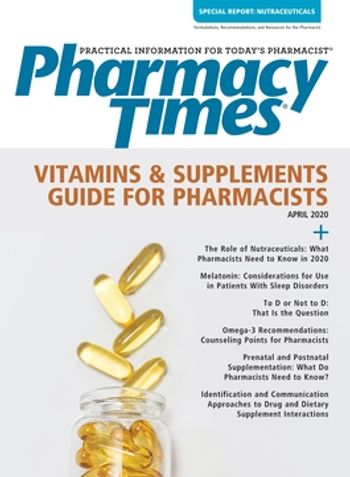
Prenatal vitamins are designed to support both the health of the mother and the development of the baby during pregnancy.

Prenatal vitamins are designed to support both the health of the mother and the development of the baby during pregnancy.

Pharmacists are ideally positioned to educate patients on which supplements to take with their medications.

As a pharmacist, it is important to know which patients may benefit from omega-3 supplements the most, the supplements’ proper dosage, and the benefits that can be expected.

Vitamin D encompasses a group of fatsoluble secosterols that are found in certain foods and supplements and can also be produced when synthesis of vitamin D is triggered after the sun’s ultraviolet rays touch skin.

Melatonin, an endogenous, or natural, hormone mainly produced by the pineal gland in the brain, regulates several body processes, including circadian rhythm and sleep patterns.

Nutraceuticals are commonly defined as any substance that is a food or part of a food which provides medicinal or health benefits, including the prevention and treatment of disease.

Vitamins and Supplements Guide for Pharmacists Digital Edition (April 2020)